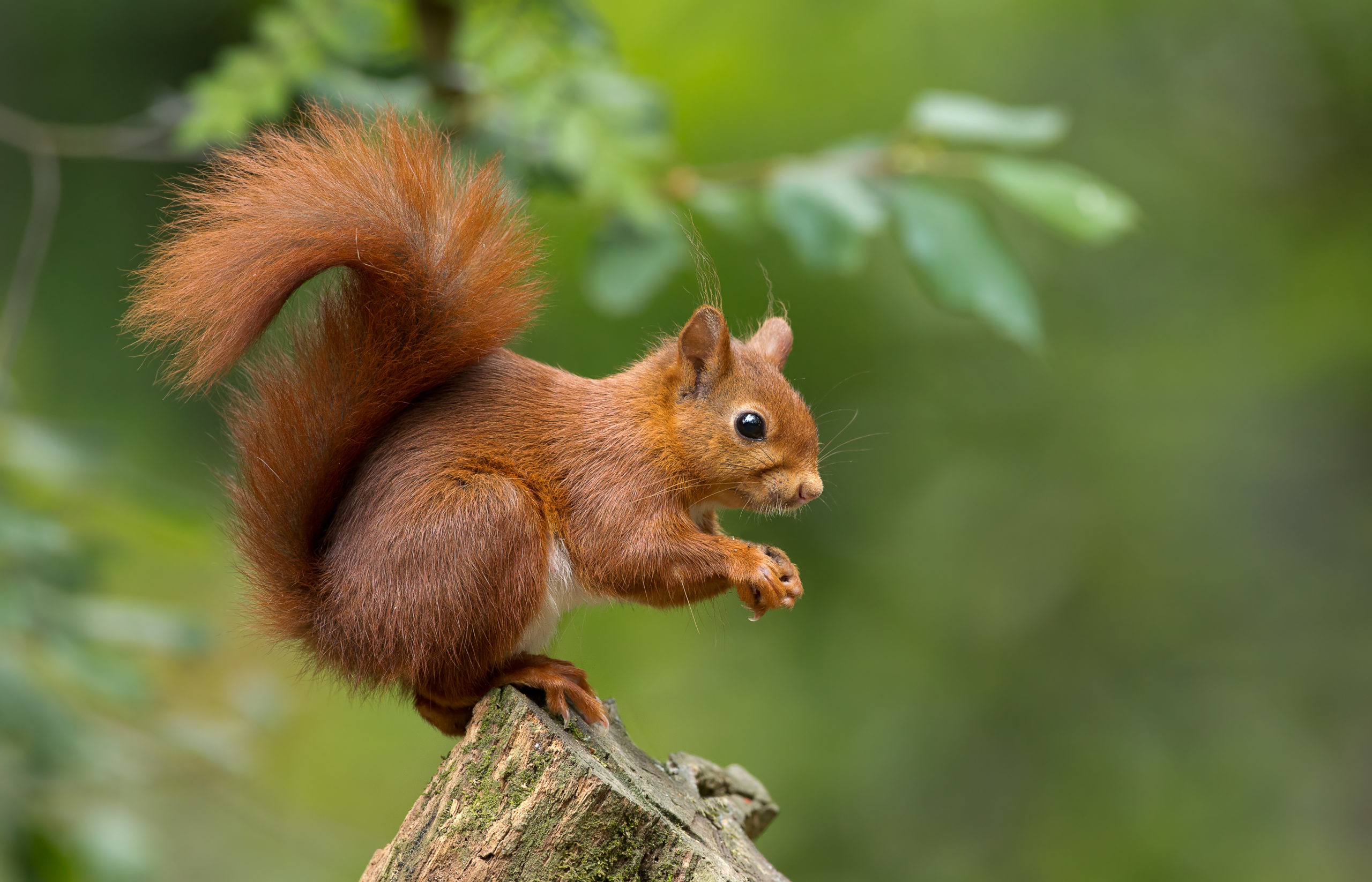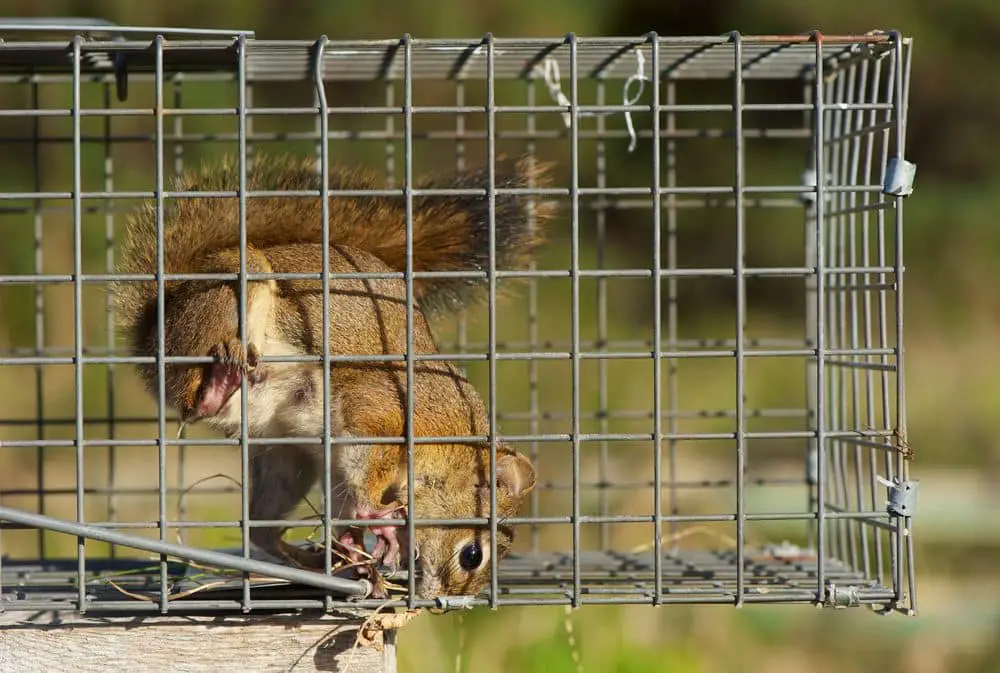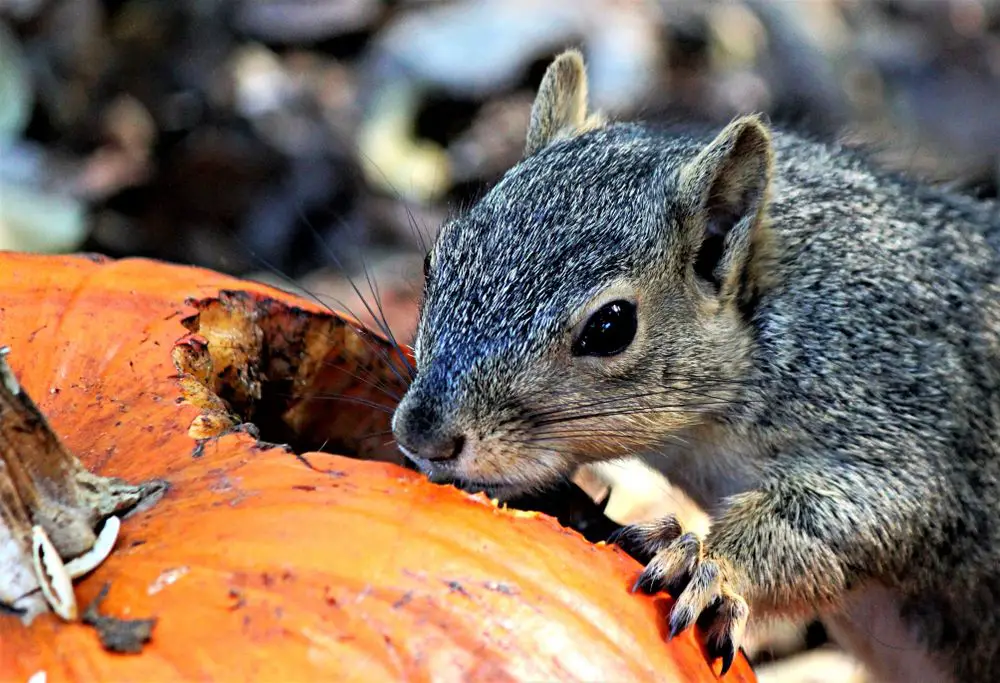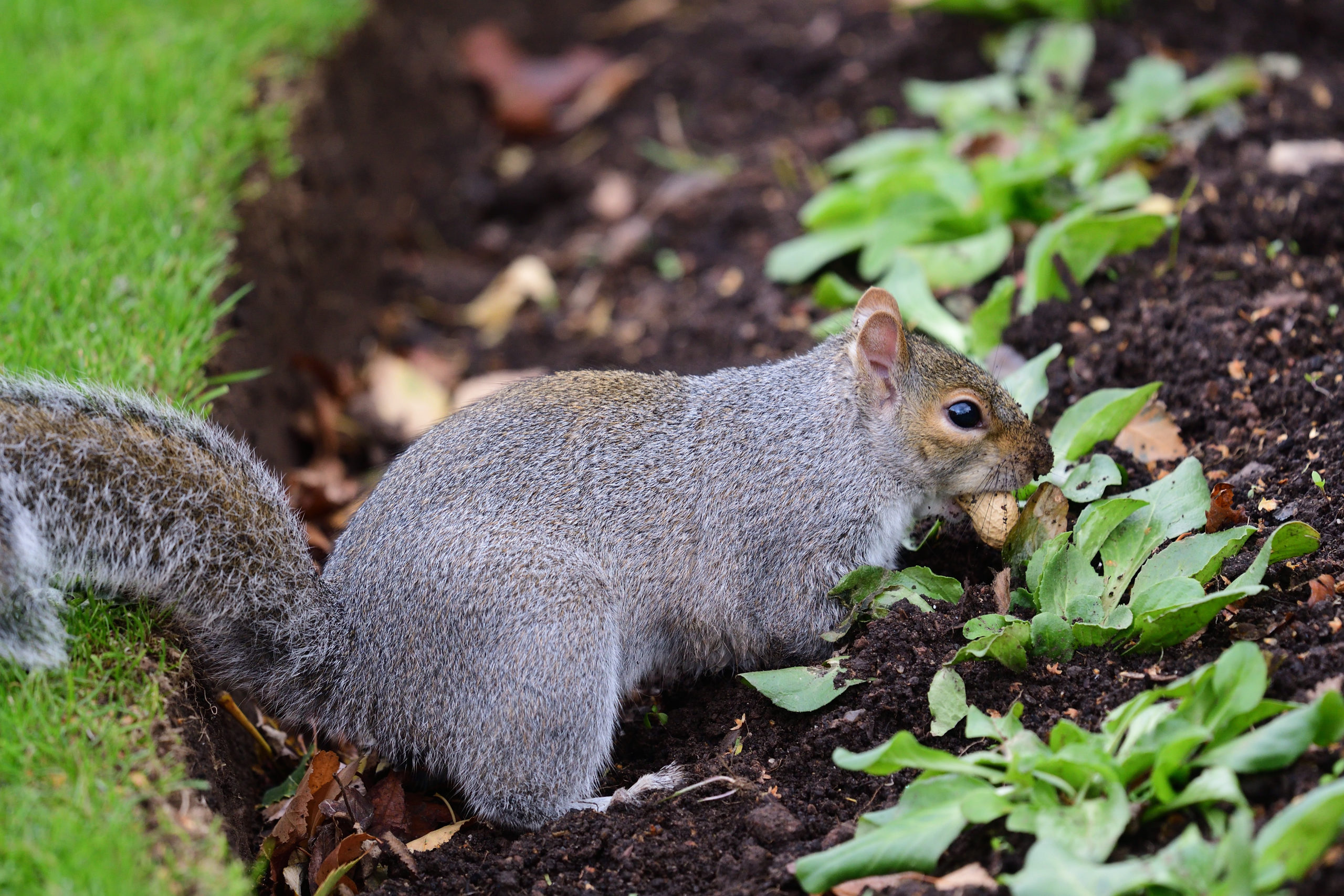Squirrels elicit smiles and laughter with their acrobatic acrobatics and furious chattering. For gardeners who find their beds dug up and their tomatoes nibbled, however, these bushy-tailed rodents are nothing but a cause of anger and a burning desire to figure out how to keep squirrels out of their gardens.
How to Keep Squirrels Out of Raised Garden Beds? (Fast Solution)
Remove what attracts them, scare or detract them. Create a barrier, or cover your garden with soil or mulch, or stink them out (and yourself also!). Give them food and drink – away from your garden, repel them, exclude them. Protect your harvest and trap them. Most of all deter them.
Squirrels in Raised Garden Beds: 12 Ways to Keep Them Out
Squirrels are as widespread in the landscape as trees in many regions. As you can strive to maintain them out of your yard, it is generally more accurate and economical to outwit them.

To keep squirrels from ruining your garden, some people have suggested that you might like to try some of these methods, but keep in mind that what works for one squirrel may not work for another.
Frankly, I’m of the opinion that one needs to get these squirrel pests – out of our gardens and gone for good! Certainly not pander to them.
However, some of you may like to try some of these suggested methods which are less extreme. For the best outcomes, perhaps use a combination of strategies.
1. Remove What Attracts Them
Clean up any fallen nuts, acorns, or berries as soon as possible. A convenient nut gatherer will make the operation go faster and easier.
Also, make sure trash can lids are properly closed.
2. Scare Them
Squirrels are scared away by the presence of a dog or cat in the yard, and they are less likely to settle in your yard.
You will have fewer difficulties with squirrels if you train your dog to chase them. If you don’t own a pet, some people actually buy vials of wolf or tiger pee and place drops of it around the perimeter of their gardens.
Squirrels, rabbits, and deer are among the creatures that are terrified of the aroma. You will need to reapply spray-on urine if it rains.
Motion-activated sprinklers may work for a while, but do not count on them to keep squirrels at bay all of the time. Insert pinwheels in newly planted areas.
To add noise and movement to the landscape, hang used compact disks or recycled aluminum pie tins on posts.
It might work until the plants have progressed past the seedling stage, when many. But not all, squirrels lose interest unless you are planting tomatoes, of course.
3. Distract Them
Build fake feeding stations in an isolated section of your yard, away from planting beds and edible crops, with items squirrels enjoy (such as sunflower seeds, peanuts, and feed corn).
To feed the squirrels, some gardeners put a few extra tomatoes in these areas.
Ensure there is plenty of water in your squirrel hideaway.
A word of caution: putting out food and water may attract other animals, so evaluate the hazards before going ahead.
Oh Really?
4. Create a Barrier
Use row covers, a chicken wire cage, or even a greenhouse to keep squirrels away from tempting food. To deter squirrels from digging under the fence, it should be buried up to a foot deep.
5. Use Companion Plants to Stink Them (and you) Out
Encourage squirrels to stay away by surrounding or interplanting with plants that they dislike, such as mint, marigolds, nasturtiums, or mustard.
Crown imperial bulbs (Fritillaria) are another option, but because of their strong skunk-like odor, they should be planted far away from populated places such as patios or porches.
6. Cover Bare Soil
Many gardeners use bare earth in seedbeds and around newly planted seedlings to deter squirrels from digging.
Squirrels dislike the sensation of mulch especially gravel under their feet, so use it in your vegetable beds.
It can also assist to mask the aroma of newly planted bulbs when used over them. You might also use aluminum foil to cover the area.
7. Give Them Their Food
Giving in to the little guys may just be an option, even though it is a controversial strategy that may wind up attracting more.
Make them their feeding spot far away from your garden beds if you have a wide area.
Feed squirrels their sunflower seeds, peanuts, and feed corn with a squirrel feeder. Some gardeners even grow extra tomatoes to keep them occupied and away from their own.
Isn’t this encouraging them?
8. Give Them a Drink
Squirrels may be thirsty if they are nibbling on your tomatoes or other juicy fruits or vegetables.
During the growing season, supply the squirrels with a bowl of fresh water, according to Theresa Rooney, author of The Guide to Humane Critter Control, and the squirrels will most likely leave those tomatoes for you to harvest.
I can see lots of gardeners rushing to do this for the poor little creatures!!!
9. Repel Them
Many of the same aromas irritate squirrels as they do deer, thus repellents like Plantskydd Deer Repellent work well.
Adding a thin layer of coffee grinds or tucking a little bit of dog hair around and under plants is another option.
Many recipes for repelling squirrels can be found online.
Capsaicin, the chemical that gives hot peppers their spiciness, is featured in a few of them. Other ingredients include peppermint oil, vinegar, or a combination of these.
After the rain, reapply these sprays and do not spray plant portions you expect to consume. There are also commercially marketed repellant granules and sprays.
10. Exclude Them
Install a cage or cover to keep squirrels away from your plants or beds. Hardware cloth, plastic bird netting, chicken wire, and summer weight row covers are all good options for protecting your crops.
To protect a single plant, make a cage out of hardware cloth or chicken wire and plastic bird netting, with clothespins to keep the netting in place.
11. Protect Your Harvest
Wrap small pieces of bird netting over individual fruits on tomato, eggplant, or other vegetable plants.
Wrap the ripe tomatoes and let the green ones alone because squirrels are particularly fond of them as they ripen.
12. Trapping Squirrels

Squirrel trapping and release are popular among gardeners. Although this may partially limit the number, new squirrels might rapidly relocate into the abandoned territory.
Squirrel traps may seem like a smart idea at the time, especially if you want to get rid of them, but they are rarely a long-term answer. You are usually waging a losing battle.
Another reason to avoid traps is the possibility of separating a mother squirrel from her young. They have no hope of surviving, especially in the spring.
Which, while it may sound appropriate at the time depending on your level of frustration, but it is not a good thing.
Squirrels are also protected by law in several regions of the country as a game species.
This implies that baiting squirrels alive can land you in trouble, so consult your State’s Department of Fish and Wildlife or Game before doing it.
Signs of Squirrel Activity
Planting beds with shallow digging areas. These are not big locations; you are looking for holes the size of a golf ball or smaller. Squirrels are attracted to newly planted seedbeds because they enjoy uncovering and eating the seeds.
Fruit with bite marks and/or missing. Squirrels will sometimes eat only a portion of tomato and leave the rest, while others will consume the entire fruit. Beans, squash, cucumbers, and eggplants are also popular among squirrels.
Plants are missing. Seedling fragments may be found on the ground, or they may vanish totally. Perennial leaves are the same way.
Seed heads that have been nibbled. Squirrels are attracted to sunflowers because they eat flat, maturing seed heads from the outside edges.
are attracted to sunflowers because they eat flat, maturing seed heads from the outside edges.
Container excavation. It is most certainly a squirrel’s nut-hiding handiwork if your pots of veggies, herbs, and flowers are continually dug into. In their search for nuts, squirrels will occasionally find young potted plants.
Flowers that have been partially consumed. Squirrels seem to prefer daisies, but they do consume other flowers occasionally. Squirrels are feasting in your yard if you see half-eaten daisies with half the petals and most of the center disk missing.
Final Thoughts on How to Keep Squirrels Out of Raised Garden Beds? (Fast Solution)
Your home is your haven of comfort and pleasure, safety and peace. When you return at the end of a long day’s work you need to relax and unwind and just be.
When we hear our home is under attack we have a tendency to react rather than think things through. Therefore we end up doing some rather rash things which would not have been the case if we’d have taken the time to plan.
Squirrels are a serious garden pest, wreaking havoc and frightening birds, and destroying the feeders you put up for the birds.

While many of us like watching them at play – when they’re being cute – they’re a serious problem for gardens and gardeners. They cause extensive damage and need to be terrified of entering your garden or property.
Squirrels are known for eating nuts and birdseed, but they also enjoy eating your garden seedlings, fruits, berries, flowers, leaves, and tree buds.
Squirrels, like other rodents, have long incisor teeth that never stop growing, therefore they gnaw on a variety of your objects to maintain their fangs as short as possible.
In the fall, when they are getting ready for the winter, they are at their most annoying when they’re rummaging.
When nuts and seeds are scarce, they will return in the spring to take advantage of new growth and developing fruit, – yours that is.
Take a little time and outwit these maurauding rodents. Your Home and Garden will then be off-limits and you can settle down to enjoying and relaxing in, or working in, your garden once again.
Read More:
Does Irish Spring Soap Keep Squirrels Away? (How to use)

